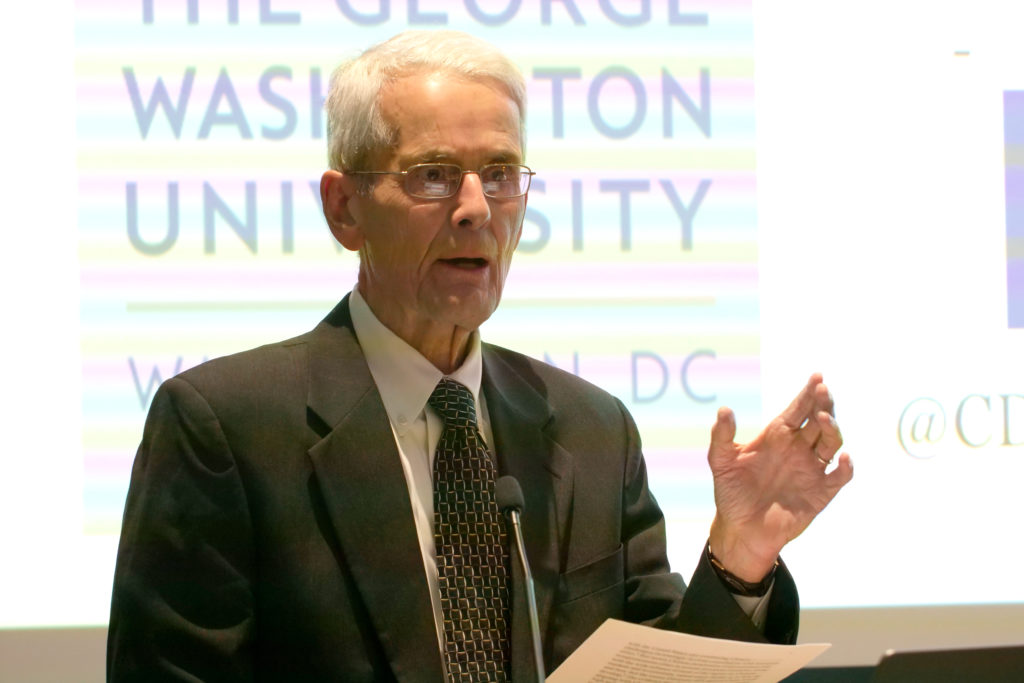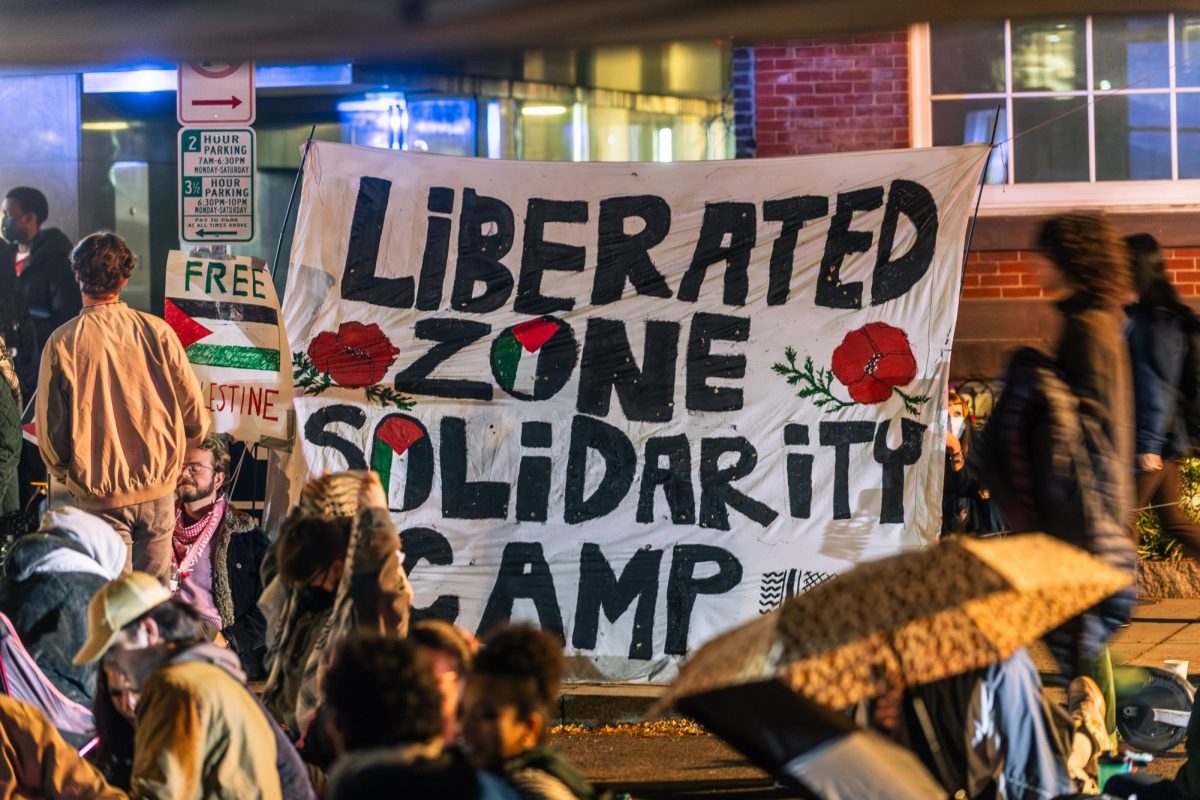The GW chapter of the China Development Student Think Tank hosted a discussion on the relationship between the United States, China and the European Union last week.
Professors in international affairs and an EU delegation member to the United States elaborated on how U.S. and EU policies toward China have escalated tensions among the three international groups in the past decade, defining the current state of global economic competition. About 45 people attended the panel – which was moderated by Steven Huang, a senior in the School of Business and CDSTT’s vice president – in the University Student Center Presentation Space room.
Tomas Baert, the head of trade and agriculture of the EU Delegation to the United States, said while the two entities recognize the issue of China’s economic rise, the EU approach toward China has been complex and multilateral while the U.S. approach is more confrontational and unilateral.
“What emerged under the [Donald] Trump administration was largely, in our view, a transactional approach, not a transformational one,” he said. “It’s the disillusionment that led the United States to a fairly unconventional and confrontational foreign policy approach by President Trump.”
Baert said the EU perceives China as both a rival and a partner, while the Trump administration diverged from the EU’s strategy and increased tariffs on Chinese exports to maintain the country’s position of power.
He said the EU usually cooperates with China on issues like climate change while also denouncing it for human rights abuses and unfair trade practices. He said the American strategy pursues a more transactional approach through tariffs and trade agreements like one initiated in 2020.
“What the Trump administration did was negotiate a Phase I trade agreement, which was very transactional as it included a number of commercial purchase commitments driven largely by domestic political calculations and interests to win the next election,” Baert said.
Robert Sutter, a professor of practice of international affairs, said China’s behavior has influenced the European Union to increase collaboration with American companies to try to protect itself. He said Chinese politicians’ lobbying efforts directed toward European diplomats and their respective countries have seriously damaged EU unity.
He said European governments have been willing to work with the United States to restrict unwanted Chinese acquisition of high technology because of their shared concern that China is trying to assert dominance in key industries.
“The Chinese vision portrayed a paramount world opposed to the West,” he said. “The underlying goal was to promote and ultimately impose a Chinese worldview and legitimate China’s controversial security, economic and government’s practices.”
Sutter said China has successfully used forceful approaches to assert political influence in European countries. He said these instances demonstrate the China’s lobbying efforts to attract European lawmakers and businessmen to weaken existing transnational alliances like the European Union and United Nations.
“Recent Chinese penetration of government and nongovernment elites in several European countries along with the wide reliance of most of the region on Chinese markets and investments raise major doubts as to how far and how fast the recent U.S. shift against China will develop,” he said.
Matthias Matthijs, a professor of international political economy at Johns Hopkins University, said European countries will try to achieve a more “social Europe” where open strategic autonomy – the ability for countries to rely on their own resources in key strategic areas and to cooperate with partners whenever needed – would emerge.
He said the COVID-19 pandemic also influenced country leaders to decide on a new structure for the European Union and make the union’s relations with China more independent from U.S. interests.
“There’s a consensus that the EU needs to be able to act more autonomously to defend its interests in a multipolar world,” Matthijs said.








